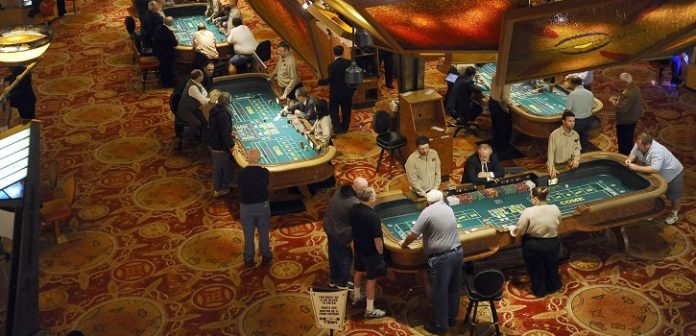Seeing the revenue other states get from gambling and sportsbooks, the state of Connecticut wants in on the action. It has wanted to raise the amount of money it has been receiving in revenue from casinos for a while.
However, there has been a major roadblock in the state’s plans to open a new casino. There is a legal battle brewing between the Native American tribes that already have casinos and the state. The state government wants to open a casino, and this is one the tribes won’t own.
Connecticut’s Gaming History
 In the 1980s, Connecticut became one of the first states to have casino gambling through a Native American casino. Tribal gaming in the state began in 1986 when the Mashantucket Pequots opened a bingo parlor on its tribal land. A federal court ruled the state had no say in the decision because it has no jurisdiction over tribal lands. The Pequots added table games and slot machines in the early 1990s. The Mohegan tribe, which gained federal recognition in 1992, opened a casino on its tribal lands in 1996.
In the 1980s, Connecticut became one of the first states to have casino gambling through a Native American casino. Tribal gaming in the state began in 1986 when the Mashantucket Pequots opened a bingo parlor on its tribal land. A federal court ruled the state had no say in the decision because it has no jurisdiction over tribal lands. The Pequots added table games and slot machines in the early 1990s. The Mohegan tribe, which gained federal recognition in 1992, opened a casino on its tribal lands in 1996.
Under an agreement, both tribes must pay the state 25 percent of their slot machine revenue each year. That amounted to 25 percent of $13 billion in fiscal 2016-2017. In return, the state government agreed the two casinos would have the exclusive right to casinos in the state. However, the state is now looking to alter the agreement.
The Problem
The current problem for Connecticut? Competition. The newly opened MGM Casino in Springfield, Mass., has taken some of the profits from Connecticut’s casinos. Springfield is only 26 miles from Hartford, Connecticut’s capital. The grand opening for MGM was less than a month ago. But, in its first week, the casino took in $10 million. So, the expectation is that it will continue to pull in millions. The casino’s design makes it more like an entertainment resort. The new casino has room for large concerts, shopping, entertainment, and family-friendly attractions. That makes it different from any other casino in the immediate area.
Connecticut’s answer to the casino is to combat it by opening a new one. The state would like to put the new casino in East Windsor, which is nearly halfway between Springfield and Hartford. The hope is this casino could act as a draw for people in southern Massachusetts and northern Connecticut. The state wanted to grant a license to a company that could get the casino up and running quickly. However, the two tribes stopped this plan and took the state to court.
The Possible Outcome
The court ruled in favor of the tribes. It said the state has no right to legally force the tribes to approve changes to the original agreement. While Connecticut legislators were unhappy with this, it is still possible that a compromise could be made. The tribes and some of the legislators have put legislation forward that could alter the compact. The alteration would allow the tribes to jointly operate a casino in East Windsor. Under the proposed agreement, the tribes would split the profits. And, Connecticut would continue to reap the benefits of the slot machine revenue.
However, some legislators are not happy with the current offerings by the tribes. They believe that the casino proposed by the tribes will be much smaller than the MGM Springfield. It also may not have as many attractions as the casino in Springfield. And, that means people may be willing to drive the extra miles to get to a larger, more luxurious casino. In addition, MGM has offered to build a casino in Bridgeport. That is unlikely to happen, however, as long as the current tribal compact is in place.
Disclaimer: All images are copyright to their respective owners and are used by USA Online Casino for informational purposes only.












